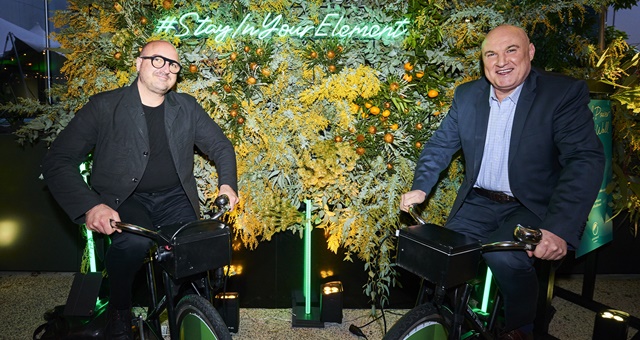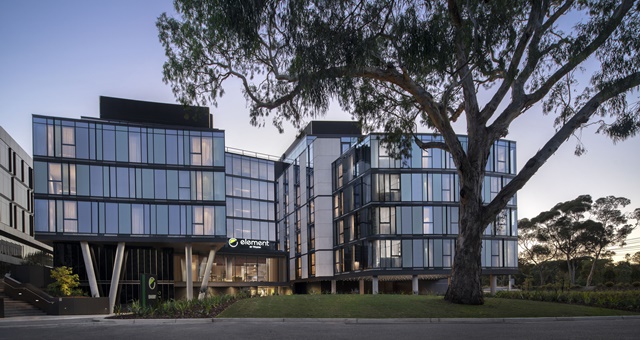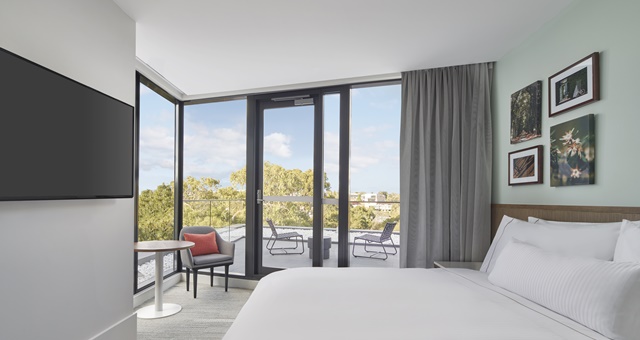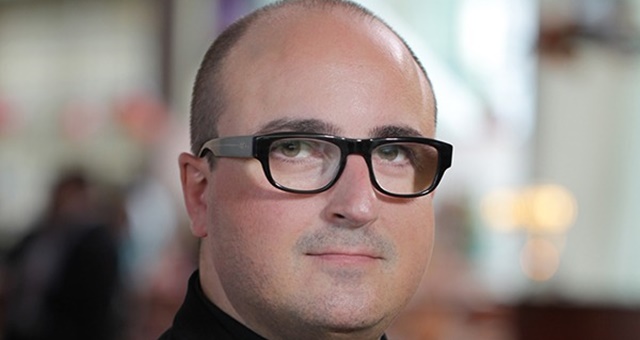
Lifestyle hotels are soaring in popularity around the world. Was this expected or foreseen at any point?
We did a lot of consumer research on general consumer behaviour. We’re looking at why people travel and what they’re looking out of travel and increasing the belief that consumers want to not necessarily own material things, but actually connect experiences in life. Travel takes such an important role in that collection of experiences is what people are looking for. And so, making an emotional connection while a traveller is staying with you has become an increasing focus area for us because people look for that emotional connection.

We built lifestyle based on different psychographic behaviours of different consumers, because of the research we do. We’re understanding what their behaviours, attitudes and passions are and trying to build an experience beyond a clean shower and a comfortable bed.
Is there much of a gap between lifestyle and boutique in terms of the general theme of a hotel, the message it’s sending or what it’s trying to achieve?
I would say that when we think of lifestyle hotels – they have a more distinctive point of view on travel and we often call them more experiential hotels. The question is, how do you define lifestyle? From our perspective it is being everything to someone, not something to everyone. It’s about really understanding that unique customer and then building the public space experience, building the design, building the staffing levels and understanding who you actually hire to deliver a more emotional connection in terms of service.
Is it necessary in today’s crowded marketplace to assimilate a new hotel brand with a globally recognised name such as Marriott International?
The idea is how we take the success of Westin, which is a tremendous brand with so much brand equity. How do we provide that offering in a longer or extended stay format here? It made sense for Element to take some of the DNA that Westin has around wellness and bring that to life. So it made sense to have the endorsement by Westin as part of the name.
For other brands we have decided not to endorse, such as Moxy, that’s by design because we want to attract new consumers that might not think about Marriott today when they travel but we want to welcome them and introduce them to the portfolio through Moxy. Therefore, having an endorsement like Marriott is not necessary or even beneficial. So the strategies vary a little bit by brand.

But you’ve hit the nail on the head for AC Hotels, which started in Spain as an independent hotel company. He’s done an amazing job growing the portfolio to over 80 hotels. And there was actually a great way for us to introduce the Marriott name into a portfolio by naming AC Hotels by Marriott. From an awareness perspective with our owners, adding the Marriott name to 80 hotels in the country was very positive and beneficial. We do it on a brand-by-brand basis, but often the endorsing brand can certainly lend the initial awareness and understanding.
How difficult is it for you now, as a leader in the lifestyle realm, to come up with a new hotel concept?
It’s always an exciting journey, but it always starts with really deeply understanding your consumers and doing a lot of research and talking to consumers about how they behave inside and outside of travel. Then we take certain brands and see how we can break some rules, conventions or challenges.
So marketing, for example, we’ve decided this consumer is very much a DIY self-service-driven consumer – taking Ubers and ordering food at home. They don’t want to go to the front desk to check-in. They don’t want to go to that traditional service model of having a bellman bring up their bags, so at Moxy, you check-in at the bar. There’s no more front desk. So we’ve provided that same service of checking you in while we can make you a drink and we greet you with a drink and we start the experience of a Moxy with the fun part which is making you a coffee or a drink.

As an example here, that is definitely challenging the norm of how we think hotels need to be run in every aspect. But it allows us to really focus on the experiential part versus the transactional part.
We know that with technology as it evolves, you can now check in on your phone, you can use your phone to open your guest room. We were trying to shift how we think about the typical service interaction you might get. That is all driven by consumer behaviour. Same thing for Element. The reason why we know it resonates is because consumers are much more aware and wary of sustainability and making sure buildings are green from the ground up.
That’s why I say it’s the fun part. It’s certainly more complex to operate in the [United] States because we do want to provide all these nuanced services, but it’s all because that’s what the consumer wants and that’s how we come back to it.

